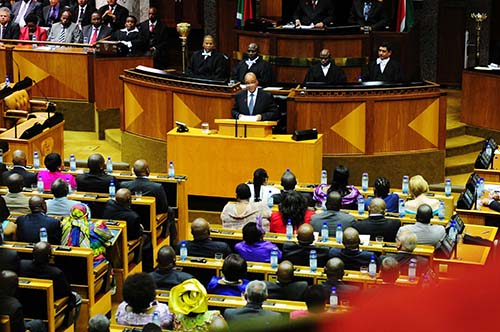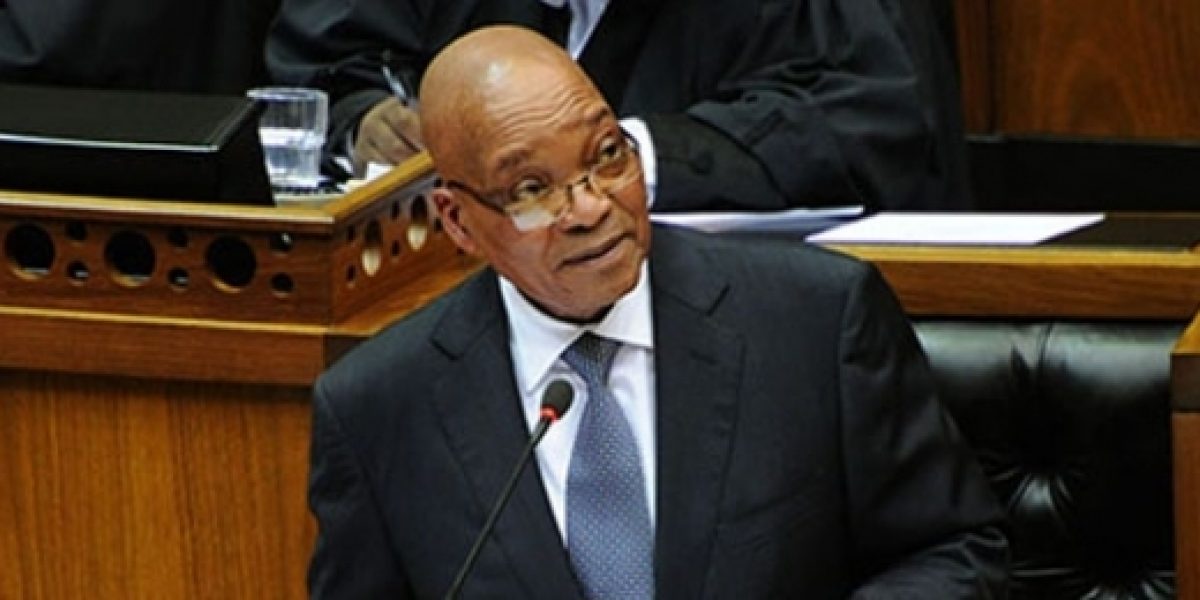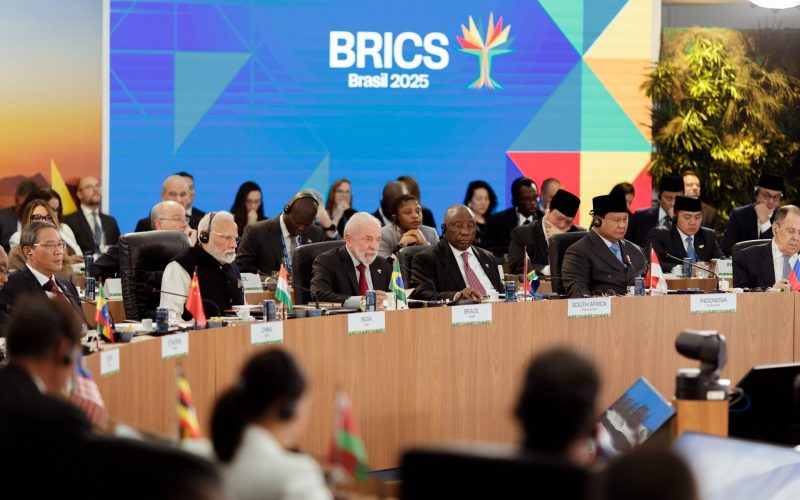Among them were the categorical dismissal of the nationalisation debate and a strong defence of the supremacy of the constitution. These are things investors want to hear and the reaction of the rand reflected a certain amount of support for the President’s speech from the markets.
The detail provided on the infrastructure development programme will also be of interest to both local and foreign investors. There has been a sense that the government has been slow to implement the plans set out by President Zuma in last year’s State of the Nation address. The time dedicated in last night’s presentation to listing a number of the projects that got underway in the later part of last year was clearly targeted at silencing such criticism. The spending already underway by the national green fund was also highlighted as an example of action by government.
What might create some nervousness among investors was confirmation of a study on the tax regime that will include evaluation of the policy on mining royalties and prioritisation of land reform which includes a move away from the ‘willing buyer willing seller’ process and possible limitations on foreign land ownership. There were also few specifics on the likely actions expected with regards to the ongoing challenges in the agriculture sector even though it is now starting to impact on all South Africans through increasing food prices.
President Zuma demonstrated the ongoing struggle in South Africa on the role of the state in the economy. On the one hand he acknowledged that it is not possible for the government alone to achieve the economic goals for South Africa. On the other, however, he lauded the ability of the state to turn around key industries through strong intervention, using bus and train production as well as the clothing and textiles sectors as examples. Local procurement regulations were mentioned as key in this regard. The value of government effort to protect uncompetitive industries such as clothing remains to be seen beyond the short term salvaging of a few jobs.
Business was acknowledged as a partner in South Africa’s development by the President. Three out of the four references to the private sector were urging them to support or contribute to government-led initiatives such as absorbing the Further Education and Training (FET) graduates into the job market, establishing science or maths academies, and fighting corruption. A passing reference was made to the need to ensure ongoing dialogue and inclusion of business in the planning and implementation of national programmes.

Image: © GCIS
With regards to foreign policy, President Zuma briefly outlined a vision for ‘a better Africa in a better world’. He listed many of the current hotspots in Africa in a cursory fashion while dedicating a little more time to solidarity with the people of Palestine. Former President Mbeki was commended for his role in the mediation between Sudan and South Sudan. President Zuma voiced his hope for conclusion of the dialogues in Zimbabwe and Madagascar, perhaps displaying some impatience with both situations in his passing reference. Any mention of the upcoming election of Kenya was noticeable in its absence.
An explicit link was made between South Africa’s participation in global coalitions like the Brazil, Russia, India, China and South Africa (BRICS) group and the Group of 20 (G-20) with its responsibilities to ‘represent the aspirations of the people of Africa’. President Zuma reconfirmed the ongoing juggling act of South Africa’s foreign policy by reaffirming the partnership with countries of the North and explicitly acknowledging the importance of Europe to the economy. There was little detail on how relations will be restored following such decisions as the cancellation of bilateral investment treaties with European countries in 2012. The broad question also remains as to how African priorities, chairing BRICS and rebuilding North-South relations will be managed in a mutually supportive fashion by South African diplomats in 2013.








